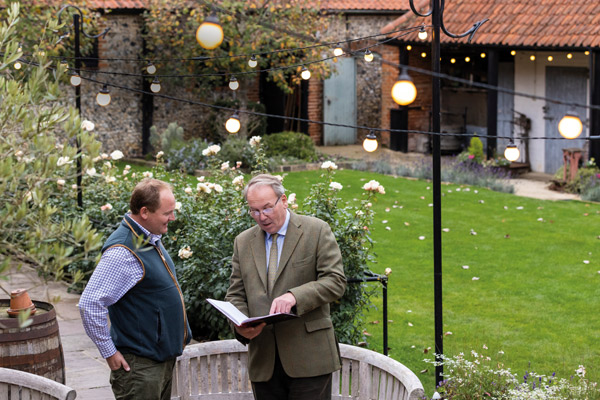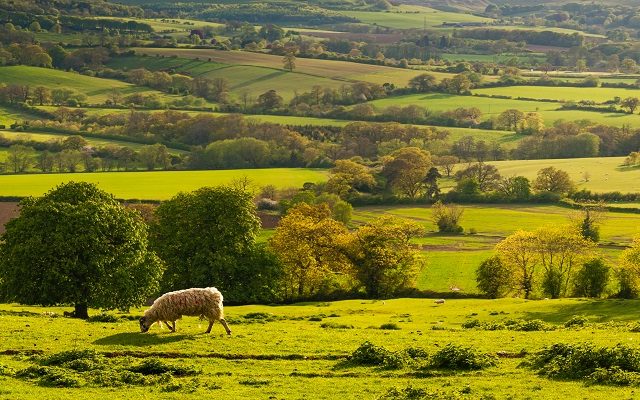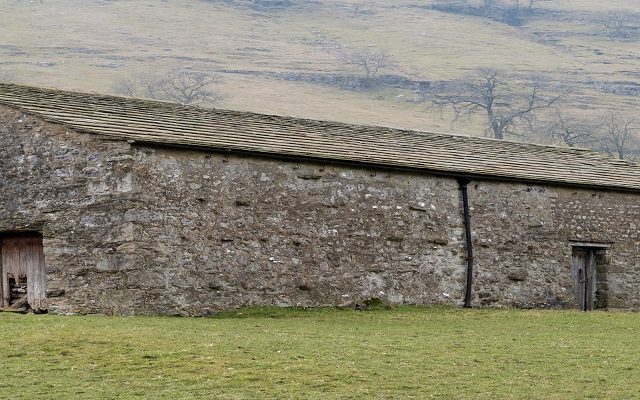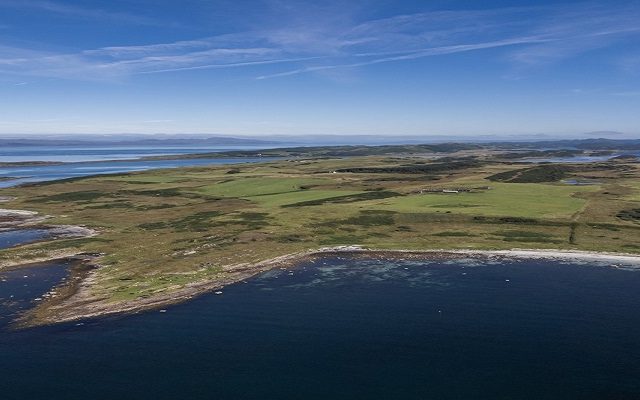Case Study: A Labour of Love
Finding new ways to maximise the value of assets has allowed one farming family to future-proof their business
It was his sister’s wedding in 2008 that gave Guy Taylor the idea which was to change his life and help secure the future of the family farm.
Guests were so complimentary about the 18th Century granary barn where the reception was held, that it sowed the seed for a new venture.
His initial plan was to use an old polo club located on the 970-acre farm on the Suffolk / Cambridgeshire border. His thinking was that he could offer a marquee on a ‘dry hire’ basis and let couples source their own suppliers.
But after talking to potential customers, he realised that people were looking for more than a marquee. So, in 2012, together with his parents, he made the decision to invest in developing a set of flint-walled and oak-framed buildings into a fully-fledged luxury wedding venue, now known as The Granary Estates.
‘Ten years later we’re staging 95 weddings a year, plus an additional 40 other functions, such as Christmas parties, conferences and company away-days,’ says Guy. ‘It’s been a lot of hard work, but I could never have imagined then the business it would become.’
Succession planning
Converting the buildings required an investment of nearly £700,000 so it was a significant step for the Cirencester graduate, who had been given the opportunity to take the reins of the family business – Simon Taylor Farms – just five years before, aged 24. He was supported by Charles Loyd, senior director in Strutt & Parker’s estate management department in Ipswich, who has been advising him on the strategic direction of the business since 2011.
‘When I first met the family, one of the challenges we identified was that the farm was the only source of income and it needed to provide a future for Guy and his parents Simon and Mary,’ says Charles. ‘At the same time, there was an awareness that there are three siblings in the Taylor family, so some planning from an inheritance point of view was also an important consideration.
‘Succession and inheritance is not a subject that many people find easy to talk about, but having an aim is often a starting point, which then allows ideas and options to be considered, before arriving at a plan. Having a plan around that very sensitive subject gave real focus to the decision-making process.’
Asset appraisal
Charles’s role was to encourage the family to take a wider approach to their assets and give them confidence to think of the farm – 820 acres of which is owned – as the banker for the new venture, so the new business could grow and support the whole family in different ways.
‘The farm provided the security for all the finance needed for the new business, which has now paid it back many times over,’ explains Charles. ‘We’re now left with this amazing new business – that is Guy’s in his own right – sitting alongside this wonderful farm, which is the core family asset. That would not have been possible without the open-minded approach from Guy’s parents and his own personal drive and belief.’
Over the past decade, Guy has continued to develop his wedding offering, supported by a team of three full-time members of staff. They have installed a biomass boiler to heat the complex, converted two farmworkers’ cottages into accommodation and introduced a ‘prop shop’ on site, allowing couples to hire wedding extras such as drapes, lights and other accessories. There are plans to introduce glamping pods in 2024.
It’s reached the point where it is more profitable to increase spend per customer, rather than the overall number of bookings, Guy explains. ‘Adding another wedding on a Tuesday, when you are discounting the hire fee and guests aren’t going to spend as much at the bar is not that cost effective, given that you still have all the fixed and variable costs associated with putting on a wedding.’
Trading business
Guy credits Charles with helping him to get ‘a grip on the numbers’, enabling him to make better decisions and sleep at night. He has also given him the confidence to think ‘out of the box’ and challenge the status quo. It’s an approach that has transformed the family enterprise from a pure farming operation, to one with a diversified trading arm that is considered very much as an equal partner to the farm.
It’s a business that really complements and supports the farm, in that it runs on a much more immediate financial model. Whereas with farming there can be an 18-month gap between buying inputs and selling a crop, with an event business, the financial model is based around a much more even cashflow with almost all events being paid for in advance.
‘The position now is that there is this fantastic solid capital asset, which is the farm, and then a brilliant events business which generates a healthy surplus,’ says Charles. Like all events businesses, the past two years have been immensely challenging, but the fundamentals of the operation were sound and having a superb offering ensured that the business bounced back as soon as the restrictions were lifted.
Core assets
Having input from a trusted advisor, who takes a more dispassionate view of how to maximise the value of the assets on the holding, has delivered huge benefits for the whole family.
‘We looked at the core assets and what is needed for either the wedding business or farming business and then asked how can we maximise the value of non-core assets on the holding to recognise other family members,’ explains Guy.
Part of this strategy involved securing planning permission on some old farm buildings, which were previously used as the farm base and office. The creation of the new events business resulted in the need for a new estate office nearer to the events centre, which now includes the farm office, allowing the old buildings to be sold to a developer to convert into 11 homes. That release of capital allowed assistance to be given to other members of the family as well as further investment into farm. Strategically the location of the farm is important as sits next to the village of Dullingham and a small area of land near the railway station is now under a promotional agreement for the development of houses.
‘A lot of parents struggle when faced with the challenge of how to treat everyone fairly when there is one farm and three children,’ says Charles. ‘My advice is always to act early, plan and not to be afraid of looking at all the options.’
Not everything has gone to plan, but Guy believes firmly that he has taken very positive lessons from any failures. For example, in 2014 he acquired the local pub, which had planning permission for nine bedrooms, with the intention of expanding the accommodation and catering offering as part of the events business. A sensible business decision but unfortunately managing the pub proved to be extremely time consuming and an emotionally draining experience. Three years later the decision was taken to sell it.
‘The decision to buy it was the right one and the decision to sell it was necessary and also the right one – and neither decision impacted the core business,’ says Charles. ‘We were strong, we had a good balance sheet, and the experience proved that it is essential to try things provided that in doing so, you don’t damage the core.’
Farm investment
Things haven’t stood still on the farm, either. In 2018 Guy built a 22m gallon reservoir, aided by a Defra grant, to help future-proof it against climate change and the loss of Basic Payments. This has enabled him to introduce vegetable crops into the rotation, with high commodity prices also justifying irrigation on cereals crops this year. Meanwhile, the 150 acres of ground rented on a Farm Business Tenancy (FBT) needed draining, so he struck a deal with the landlord that he would carry out the drainage in return for a structured deal on the rent.
Except for spraying, Guy handles all the field work himself with some additional support during harvest. He admits he is at his happiest on a tractor – ‘I’m a farmer who does a few weddings’ – but given the other demands on his time has had to make changes, paring his rotation back to wheat, oats and potatoes. ‘I want the farm to be profitable and simple.’
Meanwhile, a building at the old polo field is just about to be rented to a dog-groomer – generating another new income stream. Plans are also afoot to develop a secure dog-walking field. Guy says now he has had a taste of a trading business that involves engaging with the public, he believes it is the future, particularly with the farm so well-placed close to Cambridge. In ten years’ time, his plan is to have established a farm park.
‘Guy and his parents should be truly proud of what they and he have achieved over the past fifteen years,’ says Charles. ‘All of them have put in an incredible amount of hard work and the businesses are now at a point where Guy and his family can think freely about the future. It has also given his parents greater choices and comfort about how to be fair to all their children, while protecting what has been built up. We have all been on a journey and it has been an immense privilege for me, to have been involved and helped them on that path.’
For more information contact Charles Loyd. This article first appeared in our latest issue of Land Business. For more download the Autumn 22 edition of Land Business.






